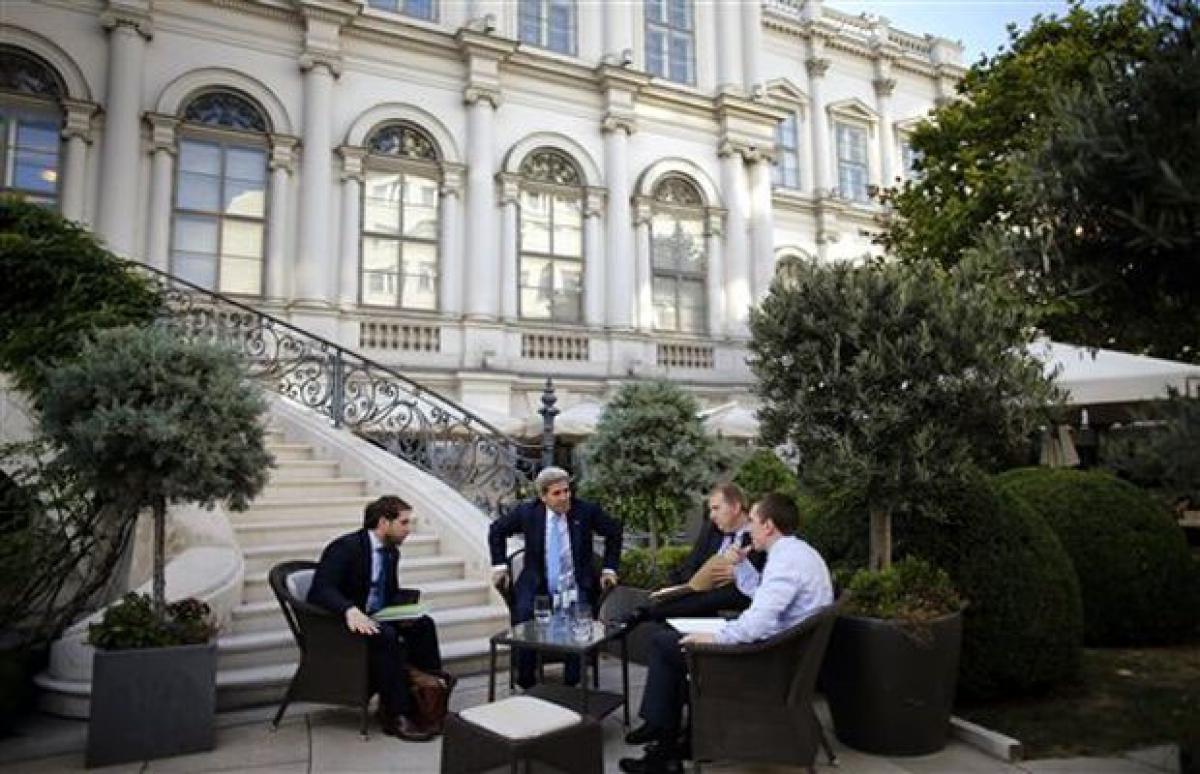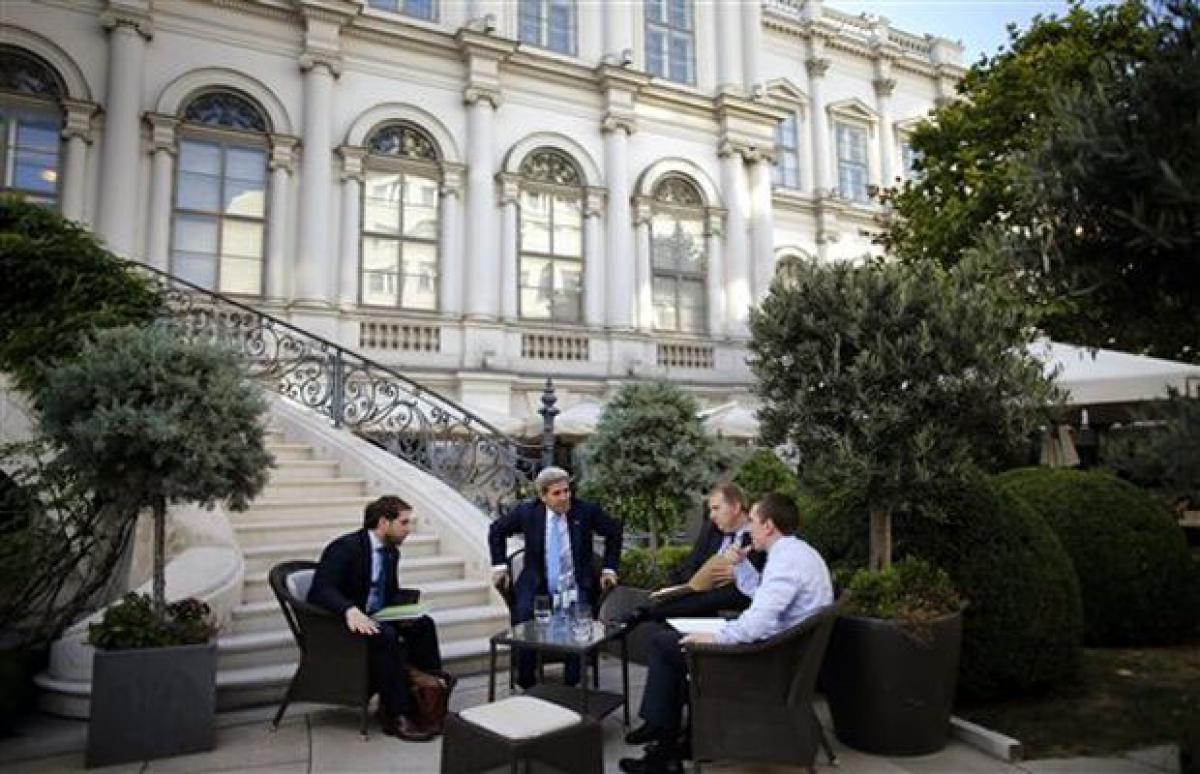Live
- Goa Aces clinch Indian Racing League title
- Study finds how hormone therapy can reshape the skeleton
- High-street fashion players looking at India for manufacturing: Report
- Shreyas Iyer to lead Mumbai as Prithvi Shaw returns for Syed Mushtaq Ali Trophy
- 'Failed to resolve crisis': NPP withdraws support from BJP govt in Manipur
- Chennai: Actress Kasturi Remanded in Custody Until 29th of This Month
- Aaqib Javed likely to become Pakistan's new white-ball head coach
- BJP panel to draft poll charge sheet against AAP govt in Delhi
- Allu Arjun Thanks Fans in Patna, Teases 'Pushpa 2' Release
- Japan to strengthen measures against illegal part-time jobs
Just In

x
Highlights
Negotiations over Iran\'s nuclear program entered their 17th - and possibly last - day in Vienna on Monday as diplomats continued to haggle over details ahead of the expiration of an interim accord.
Negotiations over Iran's nuclear program entered their 17th - and possibly last - day in Vienna on Monday as diplomats continued to haggle over details ahead of the expiration of an interim accord.

With the temporary deal set to expire at midnight Monday Vienna time (6 p.m. ET), diplomats said they were planning to complete and announce a final agreement before day's end. But, they warned there was no guarantee with several issues still unresolved. The deadline for the end of the current round of negotiations has already been extended three times and the diplomats said there was little appetite for a fourth.
After more than two weeks of see-saw developments, including threats from both the United States and Iran to walk away, senior officials at the talks began expressing optimism that a deal was in reach on Sunday.
US Secretary of State John Kerry said twice that he was "hopeful" and met again with Iran's Foreign Minister Mohammad Javad Zarif on Sunday evening. After that meeting, foreign ministers and senior officials from the five permanent members of the UN Security Council and Germany held a group dinner.
In another sign of a potential agreement, the foreign ministers of Russia and China, who had left the talks in Vienna last week, both returned to the Austrian capital late Sunday.
French Foreign Minister Laurent Fabius also was cautiously optimistic, telling reporters on Sunday that he believed the negotiations were entering their "last phase."
In Iran, President Hassan Rouhani said an agreement was close, but not quite done, describing the negotiations as "still steps away from reaching the intended peak."
Movement toward a deal has been marked by years of tough negotiations. The pact is meant to impose long-term, verifiable limits on nuclear programs that Tehran could modify to produce weapons. Iran, in return, would get tens of billions of dollars in sanctions relief.
Diplomats familiar with the talks said most of the nuts and bolts of implementing the deal have been agreed upon. But over the past week, issues that were previously on the backburner have led to new disputes. Among them is Iran's demand for a lifting of a U.N. arms embargo and its insistence that any U.N. Security Council resolution approving the nuclear deal be written in a way that stops describing Iran's nuclear activities as illegal.
A diplomat familiar with the negotiations said disagreements also persist on how long some of the restrictions on imports of nuclear technology and other embargos outlined in any new Security Council resolution will last. The diplomat, who demanded anonymity because the diplomat wasn't allowed to discuss the confidential talks, said restrictions will last for years, not months.

Next Story
More Stories
ADVERTISEMENT
© 2024 Hyderabad Media House Limited/The Hans India. All rights reserved. Powered by hocalwire.com







